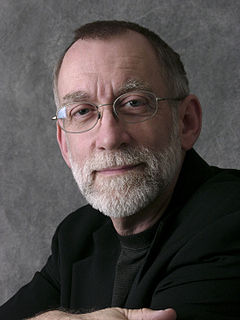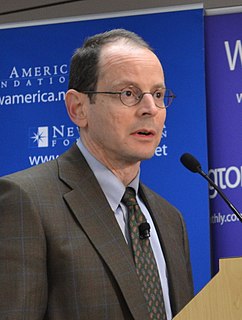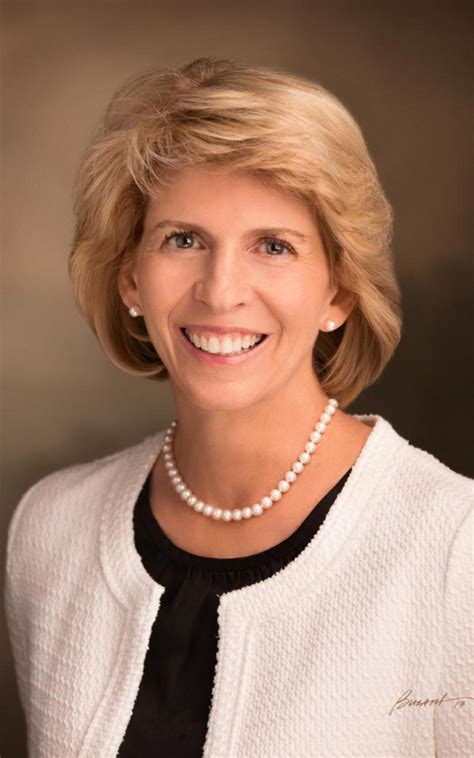Top 941 Socially Quotes & Sayings - Page 16
Explore popular Socially quotes.
Last updated on November 13, 2024.
Start dating someone who is funny, someone who has what in high school you called a "really great sense of humor" and what now your creative writing class calls "self-contempt giving rise to comic form." Write down all of his jokes, but don't tell him you are doing this. Make up anagrams of his old girlfriend's name and name all of your socially handicapped characters with them. Tell him his old girlfriend is in all of your stories and then watch how funny he can be, see what a really great sense of humor he can have.
There may be rhetoric about the socially constructed nature of Western science, but wherever it matters, there is no alternative. There are no specifically Hindu or Taoist designs for mobile phones, faxes or televisions. There are no satellites based on feminist alternatives to quantum theory. Even that great public sceptic about the value of science, Prince Charles, never flies a helicopter burning homeopathically diluted petrol, that is, water with only a memory of benzine molecules, maintained by a schedule derived from reading tea leaves, and navigated by a crystal ball.
I think the scariest addiction on this planet is to alcohol. Because alcohol is a very addictive drug, and it ruins families, it ruins relationships. And it is socially acceptable, and it is easy to find. Controlled substances, other drugs are more difficult to get, and it's a crime to... to buy them. But alcohol is everywhere. And if you are unfortunate enough to become addicted to it, it can be disastrous. And there is still a stigma attached to alcohol addiction, or addiction in general. It is perceived as... an addict is perceived as somebody of weak moral fiber
Concrete, Steel & Paint portrays the core values of restorative justice-respect, responsibility and relationships-expressed through art. it is art that involves victims, offenders and communities in a dialogue that is sometimes difficult and painful, sometimes reconciling, but always engaging. As one prisoner says in the film, 'We have come together collectively through art.' It will be a great discussion tool for college classes, community groups and others interested in issues of justice, community-building, conflict resolution and socially-engaged art.
Leave an extrovert alone for two minutes and he will reach for his cell phone. In contrast, after an hour or two of being socially on, we introverts need to turn off and recharge. My own formula is roughly two hours alone for every hour of socializing. This isn't antisocial. It isn't a sign of depression. It does not call for medication. For introverts, to be alone with our thoughts is as restorative as sleeping, as nourishing as eating. Our motto: I'm okay, you're okay-in small doses.
It is irrational to charge high prices for socially valuable innovations as this guarantees that they will be underutilized. It is much better to sell them at cost and then to reward the innovator in some other way. This is not always possible, because in some cases the value of an innovation is in the eye of the beholder; it's very difficult to value how much a new Madonna song is worth, for example. But in the case of medicines, green technologies and seeds in agriculture, such an alternative reward mechanism is fairly straightforward.
Until the Left took over American public education in the second half of the 20th century, it was generally excellent - look at the high level of eighth-grade exams from early in the 20th century and you will weep. The more money the Left has gotten for education - America now spends more per student than any country in the world - the worse the academic results. And the Left has removed God and dress codes from schools - with socially disastrous results.
Reading is always a way of forming a bond with other people. I'm not very good at socializing - I quite like spending time alone - so reading is a way of engaging quite deeply with the way other people think. Quite often when you meet other people socially you don't get to have a conversation of any depth. You end up talking about how well or how badly someone is doing at school or something of that sort. Questions like, "What we are," "Who we are," "Where are we going," you get those from literature and from people that spend some time thinking.
The ultimate cause of the October Crisis was the ideological embrace of Milton Friedman's warped but still dominant view that "the only social responsibility of business is to make a profit for its shareholders," and until that socially and economically counterproductive - and empirically, legally and ethically inaccurate - view is corrected, we will continue to have the increasing and more intense crises of global capitalism that we have seen recur with ever greater frequency over the past forty years. Sadly but clearly, the lessons have still not been learned.
Family seems so rich and complicated to me. There's meant to be this unfailing biological loyalty and yet at the same time it's this theatre for various kinds of cruelty. I know it doesn't always work out that way, but the worst possible behaviour is sort of allowed for. It looks to me like an endlessly rich container for really terrible drama, but also pretty grand love. It accommodates such a variety of feeling in such a natural way, and it feels so relatable, and yet it's such a funny construct, socially, the family.
The consumption of alcohol is increasing among youth. Targeting young audiences, advertisers portray beer and wine as joyful, socially desirable, and harmless. Producers are promoting new types of alcoholic beverages as competitors in the huge soft-drink market. Grocery and convenience stores and gas stations stock alcoholic beverages side by side with soda pop. Can Christians who are involved in this commerce be indifferent to the physical and moral effects of the alcohol from which they are making their profits?
There's a lot of responsibility involved in sharing a very personal story with a lot of people, and it's easier for others not to know about things - and I know that. But in terms of the general climate, socially, these are things people have to deal with on a daily basis. We hear so many negative stories but rarely do we get positivity. We have memes of cute cats and puppies and things like that, but if they didn't exist, people would be a lot more unhappy. We need more things like that.
More than my questions about the efficacy of social actions were my questions about my own motives. Do i want social justice for the oppressed or do i jusy want to be known as a socially active person? I spend 95 percent of my time thinking about myself anyway. I dont have to watch the evening news to see the world is bad, i only have to look at myself. I am not brow beating here, i am only saying that true charge , true living giving, God honoring change would have to start with the individual. I was the very problem i had been protesting. I wanted to make a sign that read “I am the problem
Socially, hip-hop has done more for racial camaraderie in this country than any one thing. 'Cause guys like me, my kids - everyone under 45 either grew up loving hip-hop or hating hip-hop, but everyone under 45 grew up very aware of hip-hop. So when you're a white kid and you're listening to this music and you're being exposed to it every day on MTV, black people become less frightening. This is just a reality. What hip-hop has done bringing people together is enormous.
Capitalism has created a situation called scarcity. And that scarcity is not natural, it's socially induced. Along with that sense of scarcity, or feeling of scarcity, is a feeling of economic insecurity. Along with that is a feeling of deprivation... And unless we can demonstrate that that feeling is not justified technologically, we will not be able to speak intelligently to the great majority of people and reorganize our economy so that we really know what needs are rational and human and what have been created, almost fetishisticaly, by the capitalist economy.
Our goal is not to assume leadership of existing institutions, but rather to render them irrelevant. We don't want to take over the state or change its policies. We want to render its laws unenforceable. We don't want to take over corporations and make them more 'socially responsible.' We want to build a counter-economy of open-source information, neighborhood garage manufacturing, permaculture, encrypted currency and mutual banks, leaving the corporations to die on the vine along with the state. We do not hope to reform the existing order. We intend to serve as its grave-diggers.
Any Black person in amerika [sic], if they are being honest with themselves, have got to come to the conclusion that they don't know what it feels like to be free. We aren't free politically, economically, or socially. We have very little power over what happens in our lives. In fact, a Black person isn't free to walk down the street. Walk down the wrong street, in the wrong neighborhood at night, and you know what happens.
The consumer culture in general has washed over our civilization. For the last 50 years, if you've had a credit card and some access to money, you don't really need neighbors around you. And as a result, they dwindled. The average American has half as many close friends as they did in 1950. Three quarters of Americans don't know their next-door neighbor. They may know their name, but they have no real relationship with them. That's an utterly new place for human beings to find themselves in - I mean, we're a socially evolved primate.
My job, as an actor, is to entertain people. My contribution to society is to be a respite from everyday life. People go home and watch television or they go to the movies, and they get to escape their reality. But if I can do entertainment that also maybe can educate people, educate myself, move people's hearts and minds, in some way, and bring light to some injustice, that's when entertainment is at its best. And if somebody wants to get more involved in a socially active way, that's when you've done the thing that I've always wanted to be a part of.
I am from Britain and think it is right that as a woman I am paid the same as my male counterparts. I think it is right that I should be able to make decisions about my own body. I think it is right that women be involved on my behalf in the policies and decision-making of my country. I think it is right that socially I am afforded the same respect as men. But sadly I can say that there is no one country in the world where all women can expect to receive these rights.
For women to be supplying the soldiery with banners, flannel shirts and other material comforts was, superficially, all of a piece with their ministrations to their menfolk at home. Such contributions to the war effort were socially acceptable because they could be seen as an extension into the military sphere of the traditional female virtues of charity, nurture and needlework. Yet in reality what the women were doing represented the thin end of a far more radical wedge. Consciously or not, these female patriots were staking out a civic role for themselves. And many of them relished it.
In a world threatened by a famine of righteousness and spiritual starvation, we have been commanded to sustain the prophet. As we give heed to, uphold, and affirm prophetic word, we witness that we have the faith to humbly submit to the will, the wisdom, and the timing of the Lord. We heed prophetic word even when it may seem unreasonable, inconvenient, and uncomfortable. According to the world’s standards, following the prophet may be unpopular, politically incorrect, or socially unacceptable. But following the prophet is always right.
I don't understand why it's more socially acceptable to say that you are a shallow person than to just say this is not something you want to do. Especially because it's a really hard job. It's a really important job. And why the hell should you do a really hard, important job that you don't want to do? That has extremely high stakes? That just blows my mind.
I also think the party needs to work on a couple different fronts. There are so many fault lines within the party: conservative vs. moderate, the more fiscally minded Republicans vs. the more socially minded Republicans, the Old Guard - the sort of Newt Gingrich-Karl Rove Republican - vs. the New Guard - the Michael Steele-Sarah Palin sort of emerging sect of the party. And the party has to decide what direction it's going to go in.
Morally a woman has a right to the free and entire development of every faculty which God has given her to be improved and used to His honor. Socially she has a right to the protection of equal laws; the right to labor with her hands the thing that is good; to select the kind of labor which is in harmony with her condition and her powers; to exist, if need be, by her labor, or to profit others by it if she choose. These are her rights, not more nor less than the rights of the man.
If old consumers were assumed to be passive, then new consumers are active. If old consumers were predictable and stayed where you told them, then new consumers are migratory, showing a declining loyalty to networks or media. If old consumers were isolated individuals, then new consumers are more socially connected. If the work of media consumers was once silent and invisible, then new consumers are now noisy and public.
It just struck me as really odd that there were all of these conversations going on about what young women were up to. Were young women having too much sex? Were young women politically apathetic? Are young women socially engaged or not? And whenever these conversations were happening, they were mostly happening by older women and by older feminists. And maybe there would be a younger woman quoted every once in a while, but we weren't really a central part of that conversation. We weren't really being allowed to speak on our own behalf.
I mean, in many ways, you know, I felt very connected to Ian (Dury) on, on a lot of levels. I mean, politically, & sort of, socially, our, kind of, social backgrounds are quite similar in many ways, as well as our kind of artistic endeavors. So there were many, many things that sort of chimed in for me, and kind of made me feel very instinctive about playing him, and, and although, there was sort of a certain amount of impression involved, actually, there's a lot of myself in the role.
White guilt is more of a sanctioned social convention than a genuine emotional experience. It’s a form of theatrical empathy that’s socially and financially rewarded. When you learn to say and perhaps even believe the right things about race, doors are opened for you. When you say the wrong thing, those doors slam shut. Then, the gossips and church ladies will shame you publicly, demand that you be fired from your job, and use every avenue available to them to coerce a confession, a public apology and a staged conversion that contributes to their progressive narrative.
And what is an authentic madman? It is a man who preferred to become mad, in the socially accepted sense of the word, rather than forfeit a certain superior idea of human honor. So society has strangled in its asylums all those it wanted to get rid of or protect itself from, because they refused to become its accomplices in certain great nastinesses. For a madman is also a man whom society did not want to hear and whom it wanted to prevent from uttering certain intolerable truths.
When you're socially awkward, you're isolated more than usual, and when you're isolated more than usual, your creativity is less compromised by what has already been said and done. All your hope in life starts to depend on your craft, so you try to perfect it. One reason I stay isolated more than the average person is to keep my creativity as fierce as possible. Being the odd one out may have its temporary disadvantages, but more importantly, it has its permanent advantages.
I wanted to write about the time when science became modern, around the 1950s. Right after physicist J. Robert Oppenheimer, science started being so politicized and used as such a political weapon. When my father, who is a scientist, tells me about those years, I get a competing portrait of people who were expected to behave normally and be decent respectable members of society and who were also allowed this freedom to think in big and expansive ways. Now, when you think about people who work in labs, they're allowed to be socially inept in a very fundamental way.
It used to be said that, socially speaking, Philadelphia asked who a person is, New York how much is he worth, and Boston what does he know. Nationally it has now become generally recognized that Boston Society has long cared even more than Philadelphia about the first point and has refined the asking of who a person is to the point of demanding to know who he was. Philadelphia asks about a man's parents; Boston wants to know about his grandparents.
There are three musts that hold us back: "I must do well. You must treat me well. And the world must be easy." And I sometimes think that as long as we keep the second must, which is socially learned, then some screwballs 100 years from now will manufacture atomic bombs in their bathtub and maybe annihilate the whole human race because they demand that the rest of the world must agree with their dogmas. When we don't agree, they may zap us.
I was always shy. Writing was my only outlet. Because I always hid in a room, I spent a lot of time watching people. When I was a small child I could detect hidden body language in others only I could see. People's emotions rub off on me. When I told this to my therapist she said, "Well, you're an empath." I thought, "No way. Like Star Trek?" And she clarified: because I am so socially uncomfortable, I have compassion for others who I recognize are also struggling. People with anxiety are acutely aware.
For me, the biggest champions out there are not just on the field, but also off the field. Some of the biggest champions around the world, the David Beckhams, the Lebron Jameses, they all hold themselves so well off the field, and do so many great things for the community and socially. So I think it's not just about how you perform on the field, but how you hold yourself off it.
The analytic psychotherapist thus has a threefold battle to wage -- in his own mind against the forces which seek to drag him down from the analytic level; outside the analysis, against opponents who dispute the importance he attaches to the sexual instinctual forces and hinder him from making use of them in his scientific technique; and inside the analysis, against his patients, who at first behave like opponents but later on reveal the overvaluation of sexual life which dominates them, and who try to make him captive to their socially untamed passion.
Now, almost twenty years since my last job in book publishing, I know that there are far more socially inept people in book than in magazine publishing. At the time, however, I just didn't feel I was enough: smart enough, savvy enough, well read enough, educated enough, charming enough. Much of this was probably because I was very naive, and didn't really know how to behave in an office. This made me a terrible assistant, which in turn made me a terrible junior book editor.
My mother was wonderfully out about her dementia. She would sort of - she would say to me, I came out to the window cleaner about having dementia. You know, I love the way that verb for coming out of the closet has now become so socially useful for all sorts of situations, like when you need to explain to the window cleaner that you don't know if you paid him or not.
Marx's own illusion was to think that the working class movement, which he devoted his life to creating and strengthening, would both be socially and politically successful in the industrial nations of Western Europe, and that it would develop an entirely new way of human social life that would retain and even enhance the productive benefits of capitalism while overcoming the inhumanity and exploitation of capitalist social relations. Marx himself had no solutions to these problems. His object of study was capitalism itself.







































